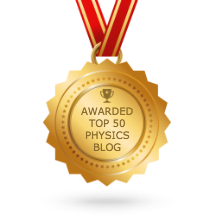The reasons usually given for including the physics component in the premedical curriculum include its importance in a liberal arts education, and the use of physics grades as a screening yardstick for admissions committees. However, educators have ignored the wide range of applications of physics to medicine in diverse areas such as physiology, problem solving, quantitation, diagnostic techniques, etc.
Most premeds take physics too late in their undergraduate program to accommodate physics electives. In medical school there is no tradition of specialized physics, as occurs in chemistry and biology. The net result is that medical students are disadvantaged in physics, unable to cope with advances in technology requiring a stronger base than the usual ten hours of undergraduate physics.
The new MCAT examination perhaps signals a change in thinking by the medical community, in that the test goes for towards recognizing the essential role that physics plays in modern medicine. Not only is knowledge of each of the sciences required, but, equally important, problem-solving and quantitative skills are tested, reflecting the sort of techniques emphasized in physics.
To directly address the question of the poor undergraduate physics preparation of future physicians and other health care professionals, we suggest that at least one, and probably, two, semesters of additional physics be added to all premedical programs. This added work should be specialized material in the physics of medicine and should require both a year of calculus and a year of introductory physics as prerequisites.
Friday, December 21, 2007
Should the Premed Requirements in Physics be Changed?
Nearly 30 years ago, Abraham Liboff and Michael Chopp—both faculty members at Oakland University—published an article in the American Journal of Physics titled “Should the Premed Requirements in Physics be Changed?” (Volume 47, Pages 331–336, 1979). Their conclusions are still relevant today, and eloquently confirm the purpose of Intermediate Physics for Medicine and Biology. Abe and Mike concluded
Subscribe to:
Post Comments (Atom)



No comments:
Post a Comment